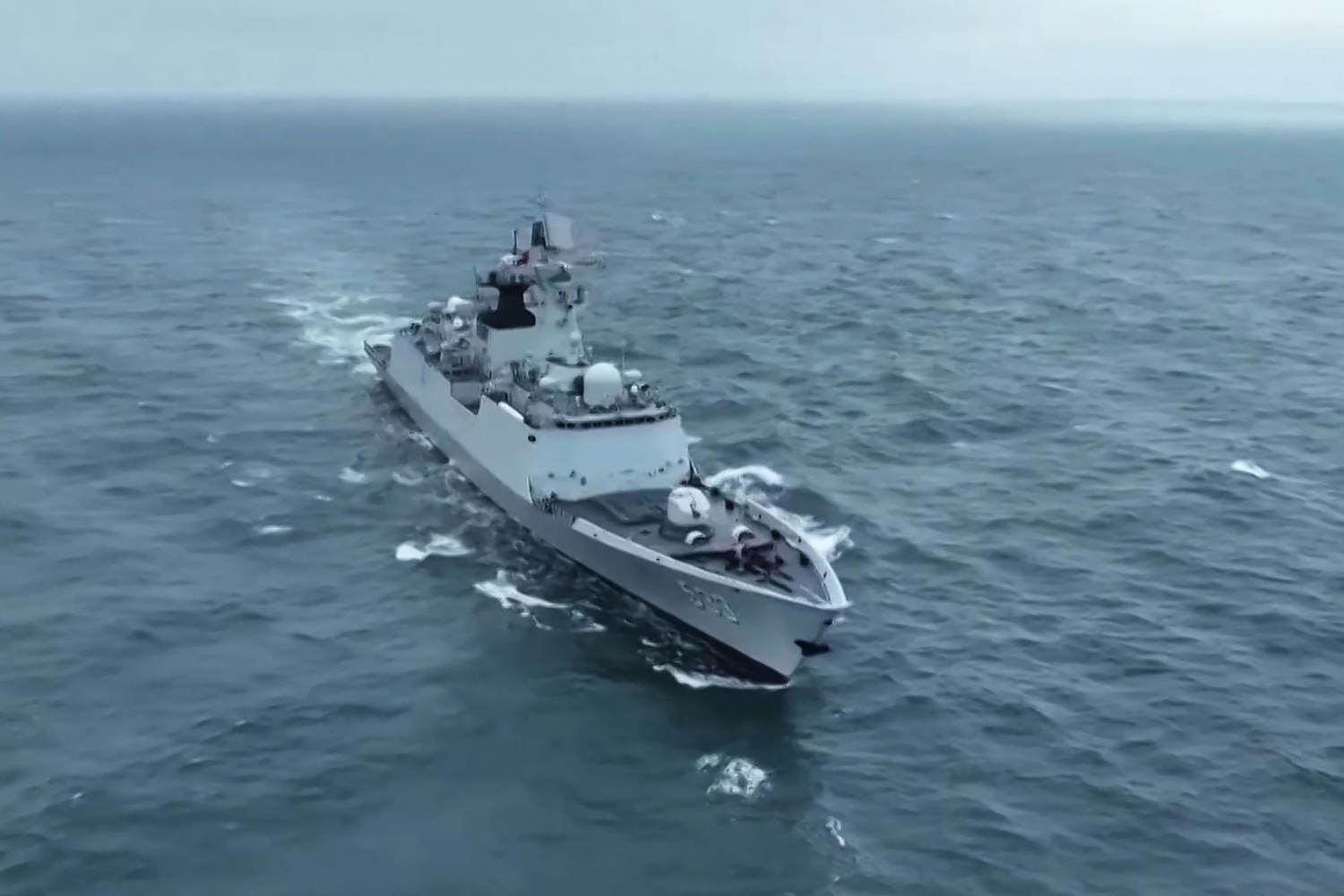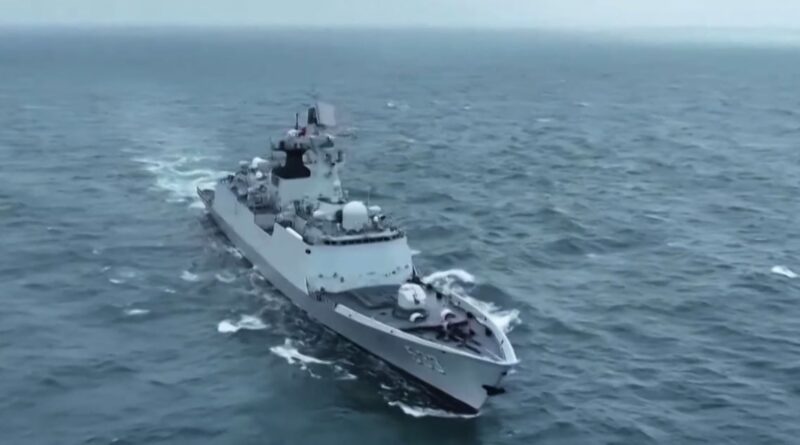China stages mock missile strikes on Taiwan after island’s new president takes office

TAIPEI, Taiwan — China staged mock missile strikes and dispatched fighter jets carrying live missiles along with bombers on Friday, state broadcaster CCTV said, as part of exercises Beijing has said were launched to punish Taiwan’s new president, Lai Ching-te.
The bombers set up several attack formations in waters east of Taiwan, carrying out mock attacks in coordination with naval vessels, it added, as China tested its ability to “seize power” and control key areas of Taiwan.
The two days of drills in the Taiwan Strait and around groups of Taiwan-controlled islands near the Chinese coast started just three days after Lai took office on Monday. Taiwan has condemned China’s actions.
China views democratically governed Taiwan as its own territory and denounces Lai as a “separatist.” It strongly criticized his inauguration speech, in which he urged Beijing to stop its threats and said the two sides of the strait were “not subordinate to each other.”
The Eastern Theater Command of the People’s Liberation Army said the exercises, dubbed “Joint Sword — 2024A,” were to “test the ability to jointly seize power, launch joint attacks and occupy key areas.”
“This action is completely reasonable, legal and necessary to combat the arrogance of ‘Taiwan independence’ and deter the interference and intervention of external forces,” said Wu Qian, a spokesperson for China’s defense ministry.
China’s coast guard said it had conducted “law enforcement drills” in waters east of Taiwan on Friday, focused on training on verification and identification, warning and repulsion.
Chinese vessel Nantong carried out combat readiness patrol and practical drill missions in the Taiwan Strait, with Taiwanese ship Zheng He following 0.6 nautical miles behind, Chinese state broadcaster CCTV said.
A public relations officer of the U.S. Navy 7th Fleet said it was paying attention to “all of the activities” in the Indo-Pacific and takes “very seriously” the responsibility to deter aggression in the region.
Taiwan and the United States have no official diplomatic relationship, as Washington formally recognizes Beijing, but the U.S. is bound by law to provide Taiwan with the means to defend itself and is the island’s most important international backer.
Speaking in Taipei, Taiwan Foreign Minister Lin Chia-lung said the island would not succumb to pressure.
“We will not make any concessions because of this Chinese military exercise, because it concerns the development of democracy in Taiwan,” he said.
The Chinese theater command showed an animated video on Friday on its WeChat social media account of missiles being launched at Taiwan from the ground, air and sea, which then slam into the cities of Taipei, Kaohsiung and Hualien in balls of flame. CCTV later said China staged mock missile attacks on Taiwan using dozens of missiles.
“Sacred weapons to kill independence,” read words in red, written in the traditional Chinese characters Taiwan uses, at the end of the animation.
Taiwan’s armed forces have mobilized to monitor and shadow Chinese forces.
Taiwan’s defense ministry on Friday published pictures of F-16s, armed with live missiles, patrolling the skies.
It also showed pictures of Chinese coast guard vessels and Chinese Jiangdao-class corvettes, though it did not say exactly where the images were taken.
The ministry said that as of 6 a.m. (6 p.m. Thursday ET) on Friday, it had detected 49 Chinese military aircraft, 19 navy and seven coast guard ships. Of the aircraft, 35 crossed the strait’s median line, which once served as an unofficial barrier though China says it does not recognize it.
The closest Chinese aircraft got to Taiwan’s coast was 40 nautical miles from the northern city, and navy base, of Keelung, according to a map the ministry provided.
Lai has repeatedly offered talks with China but has been rebuffed. He says only Taiwan’s 23 million people can decide their future, and rejects Beijing’s sovereignty claims.
Taiwan is well used to China’s military threats, and the latest drills have caused no undue alarm on the island, with life carrying on as normal.
Taiwanese media have covered the drills, but also given a lot of time to ongoing drama about contested parliament reforms that have brought thousands of people onto the streets to protest.
On China’s highly regulated Weibo social media site, “Eastern Theater” was the top searched item, with most of the comments supporting the drills. Another hot topic was “the return of Taiwan.”
Analysts, regional diplomats and senior Taiwan officials noted the scale of the drills so far was smaller than similar exercises in 2022 and that they were widely anticipated by Taiwanese and foreign officials. They said the drills still raised the risk of accidents or miscalculations.




